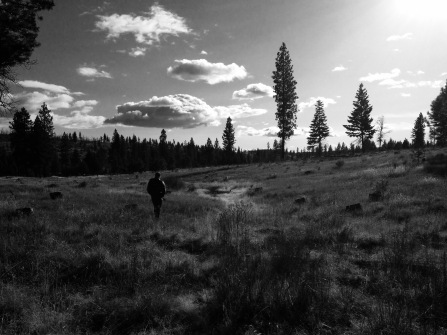 There is a complaint I sometimes hear when talking to an individual who is one half of a couple. The person will say something like, “[Other person] does not love me as I am,” or its counterpart, “[Other person] expects me to become someone I am not.” In my most recent experience of the conversation, the speaker uttered this variation, that they love their partner just as they are, emphasizing how thoroughly they know the partner, which includes a variety of frustrations…but that they would never expect the partner to change who they are. The resulting implication is that the partner should not be expecting the individual to change either.
There is a complaint I sometimes hear when talking to an individual who is one half of a couple. The person will say something like, “[Other person] does not love me as I am,” or its counterpart, “[Other person] expects me to become someone I am not.” In my most recent experience of the conversation, the speaker uttered this variation, that they love their partner just as they are, emphasizing how thoroughly they know the partner, which includes a variety of frustrations…but that they would never expect the partner to change who they are. The resulting implication is that the partner should not be expecting the individual to change either.
Needless to say, there are problems in these sentiments.
A first problem is understanding what is meant by the sentiment, “I love you.” Love is a highly loaded word, perhaps one of the most volatile in all of human language. In American English anyway, it tends to become a multi-purpose word, which does not do it any great service.
By love do we mean, I like? I enjoy? I commit? I serve? I derive satisfaction from? I like and want to have sex with? I appreciate? I respect(which is also a poorly understood word)? I tolerate? I agree with? I have giddy dopaminergic chemical responses regarding?
In the case of this conversation, I offered a reframe. Instead of saying, “I love you just as you are,” or, “I want you to love me just as I am,” perhaps we should more precisely say something like, “I welcome, value, and will remain in relationship with you, just as you are.”
Considering the devastating fears and insecurities that arise from attachment failure, my opinion is that these words more accurately convey what the speaker wants to say.
A second problem is understanding what is meant by the idea of “who I am,” or “who you are.” In many circles, there is high resistance to the Self being compromised, squelched, disparaged, limited, or in any way disliked or disapproved. Similarly there is a highly praised, even pressured and obligatory value to freely and fully and unswervingly express that Self, whoever the Self happens to feel like being at the time.
I use mildly flippant language in the line above because, the way it plays out over weeks, months and years, unless an individual has an over-arching framework of value, belief and practice as a reference point, the core aspects of Self are subject to change, maybe even frequent change, depending on situation, trauma, exploration, need, preference, or a variety of other factors. In short, for many, Self is not a stable concept.
So then, for these many, when they insist on their True Self being loved “Just as they are,” they are shooting a wobbly arrow at a very slippery target.
This second problem can be sub-divided into at least three other problems.
First – just what constitutes the Self? What are the core aspects that make up a person? Their race? Gender? Career path? Spiritual beliefs? Nationality? Favorite hobbies? Relationship to the Grateful Dead or the British Royals? This characteristic? That mental illness in remission?
A second problem is assuming that one’s present version of themselves is their ideal self, and assuming that all the characteristics present in the person ought to be there in the way they are there.
We should never question a person’s worthiness to be loved, but we can question if a person is living in a worthy or lovable manner. For example, I always love my 6 year old, but there are many 6-year old behaviors(tantrums, whining, food strikes, resistance to bathing) that I absolutely will not condone, because I love both my 6 year old, and the future 20 year old, 30 year old, 40 year old that he will be. If I do not challenge him now, he will not grow. And I think, so it is still with adults. We are not yet the fullest versions of ourselves, and we will not arrive at that person unless we are challenged.
This the Third and most interesting problem is this – the resistance to change.
“Don’t make me be someone I’m not.”
“I don’t want to make this other person become someone they’re not.”
I think that, really, people just don’t want to change. Or they don’t want to consider that they might be wrong, or not know everything. Or perhaps, being honest, the thing they love the most is their own self, and not the other person, and that indulging whatever they are indulging is their most important experience.
Changing one’s whole self is quite a lot to ask, but embracing a growth process is more palatable. Therefore, I offered the reframe – “Don’t pressure me to grow in a direction or at a pace for which I am not yet ready,” or its counterpart, “I don’t want to pressure you to grow in a direction or at a pace for which you are not yet ready.”
We ought to love with more than feelings.
We ought also to most love the other person as they are, but with their future ideal self in mind.
Real love challenges its participants.
The true self, when healthy, is open to challenge, to learning, to growth, and to change.
Let us be wise.
